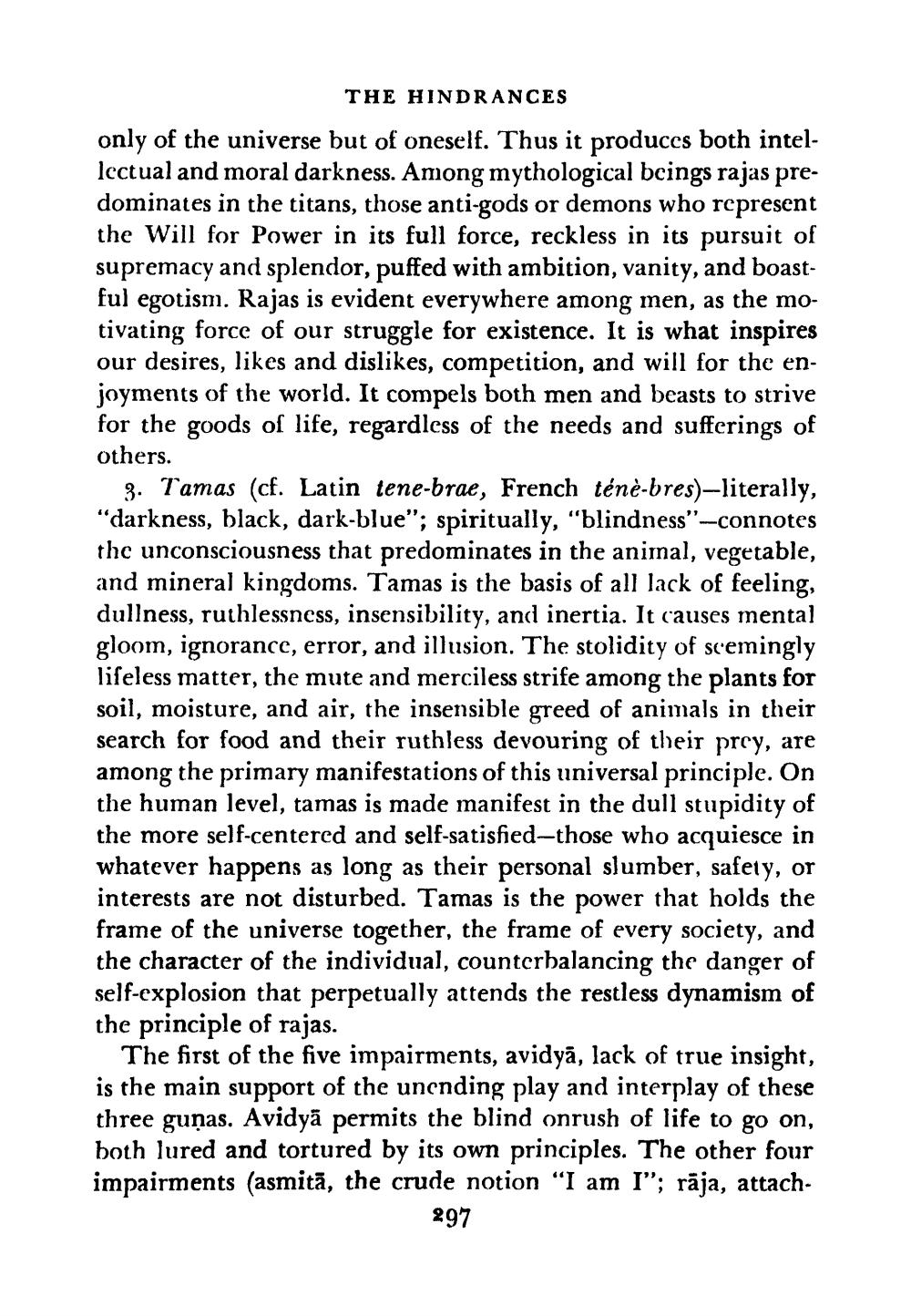________________
THE HINDRANCES
only of the universe but of oneself. Thus it produces both intellectual and moral darkness. Among mythological beings rajas predominates in the titans, those anti-gods or demons who represent the Will for Power in its full force, reckless in its pursuit of supremacy and splendor, puffed with ambition, vanity, and boastful egotism. Rajas is evident everywhere among men, as the motivating force of our struggle for existence. It is what inspires our desires, likes and dislikes, competition, and will for the enjoyments of the world. It compels both men and beasts to strive for the goods of life, regardless of the needs and sufferings of others.
3. Tamas (cf. Latin tene-brae, French ténè-bres)-literally, "darkness, black, dark-blue"; spiritually, "blindness"-connotes the unconsciousness that predominates in the animal, vegetable, and mineral kingdoms. Tamas is the basis of all lack of feeling, dullness, ruthlessness, insensibility, and inertia. It causes mental gloom, ignorance, error, and illusion. The stolidity of seemingly lifeless matter, the mute and merciless strife among the plants for soil, moisture, and air, the insensible greed of animals in their search for food and their ruthless devouring of their prey, are among the primary manifestations of this universal principle. On the human level, tamas is made manifest in the dull stupidity of the more self-centered and self-satisfied-those who acquiesce in whatever happens as long as their personal slumber, safety, or interests are not disturbed. Tamas is the power that holds the frame of the universe together, the frame of every society, and the character of the individual, counterbalancing the danger of self-explosion that perpetually attends the restless dynamism of the principle of rajas.
The first of the five impairments, avidya, lack of true insight, is the main support of the unending play and interplay of these three guņas. Avidyä permits the blind onrush of life to go on, both lured and tortured by its own principles. The other four impairments (asmitā, the crude notion "I am I”; rāja, attach
297




